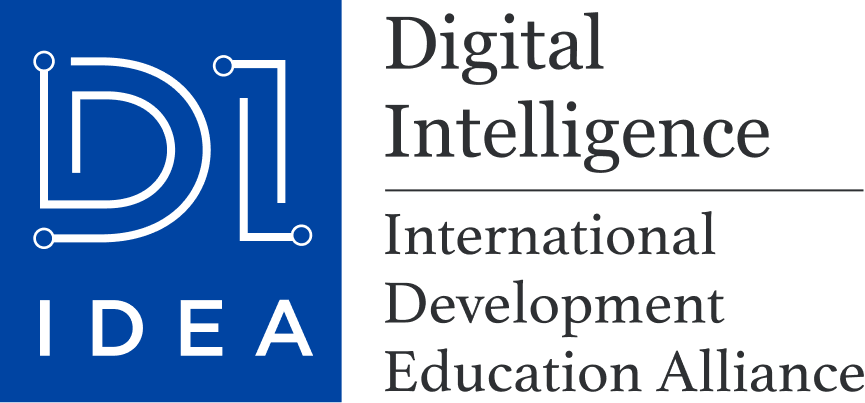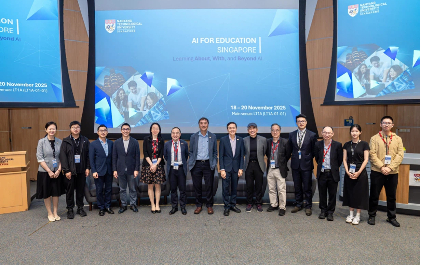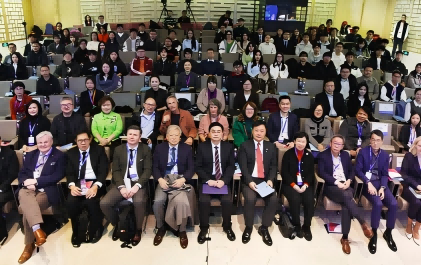On November 9, 2023, Peking University New Faculty Excellent Teaching (PKUnet) and Cambridge Teacher Research Exchange (Camtree) co-hosted a teaching salon titled “The Application of Generative AI in Universities.” Chaired by Prof. Lin Fengmin, Deputy Director of the Center for Excellent Teaching and Learning, the event featured presentations from Patrick Carmichael, Managing Director of Camtree; Liang Xingkun, an assistant professor at the Department of Information Management of Peking University; and Mo Fanyang, an associate professor at the School of Materials Science and Engineering of Peking University.
The title of Liang Xingkun’s presentation is, “Learning with AI: How AI Affects Different Learning Tasks?” He explored the challenges AI brought to education, sparking discussions on human-machine collaboration. Using chess training as an example, he demonstrated how human-machine interaction could enhance performance. He elaborated on his use of generative AI in the course, “Information Resources Construction,” underscoring how he encouraged students to utilize AI for various tasks such as fact-finding, comprehension, cause-and-effect analysis, examination of controversial topics, and random group experiments. He plans to investigate AI’s impact on learning outcomes, its correlation with different task types, its long-term effect on the learning process, and the experiences of students.
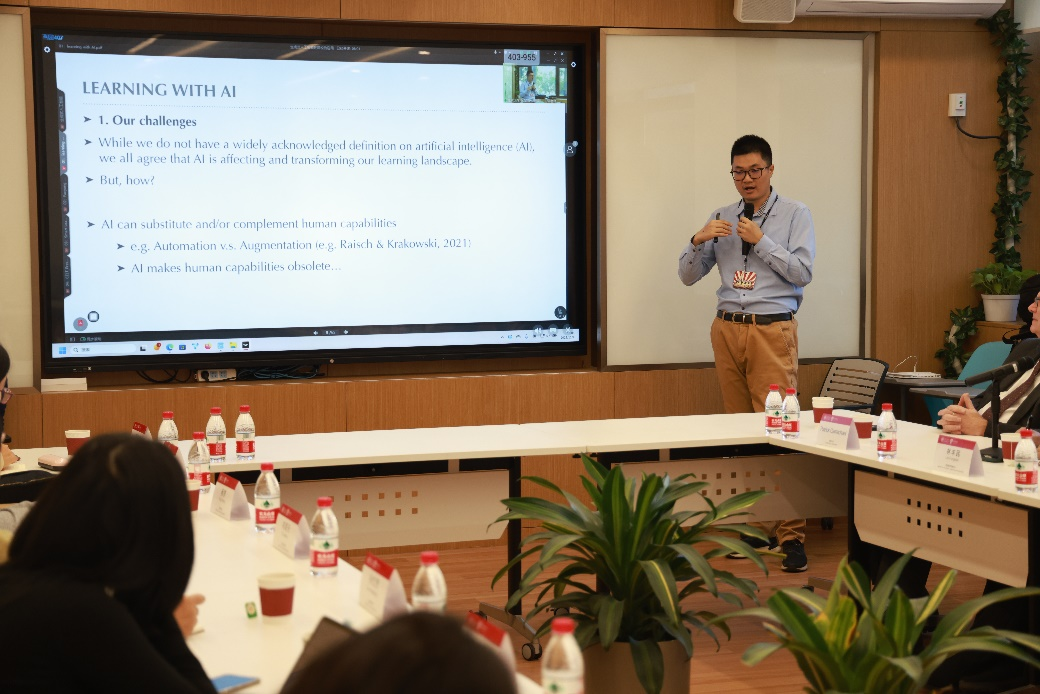
Presentation by Liang Xingkun
Mo Fanyang’s presentation, “Opportunities for Laboratory Automation and Education,” underscored the importance of AI to human society. As he put it, AI is progressively reshaping research paradigms; notably, it is introducing the “data paradigm” characterized by data-driven discoveries. Mo highlighted AI’s integration with synthetic chemistry and its role in accelerating the development of materials science. In a video, he showcased the automated platform his team built for chemical data collection. Mo summarized the educational benefits of laboratory automation, such as enhancing data collection and analysis, fostering innovation in teaching and learning methods, promoting interdisciplinary collaboration, and advancing technological development. He also identified the challenges associated with automation technologies and training, and outlined how machine intelligence could extend human capabilities.
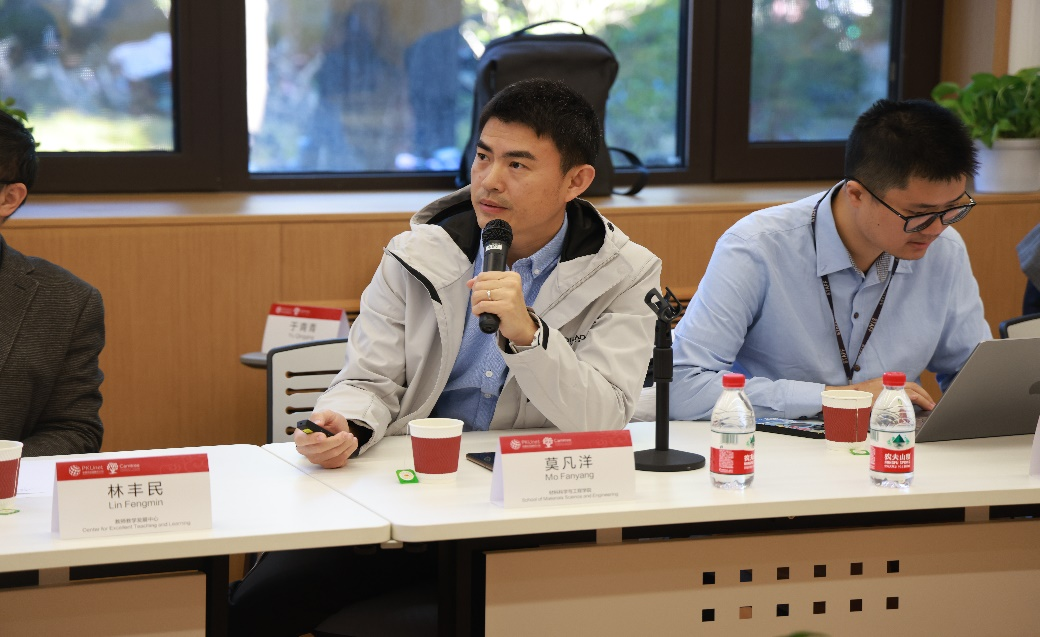
Presentation by Mo Fanyang
Patrick Carmichael gave a presentation titled “Artificial Intelligence for Learning, Teaching and Assessment”. He proposed five strategies for individuals and organizations to manage the “ChatGPT panic,” using the Gartner Hype Cycle to illustrate the uncertain development stage of ChatGPT. Patrick also discussed how to foster collective intelligence. He explored the integration of case-based teaching with linked data, along with the potential synergies between case-based teaching and generative AI. Patrick highlighted Camtree’s keen interest in leveraging AI for educational purposes. He encouraged front-line educators to reflect on and summarize their experience in using AI tools and technologies for teaching, learning, and assessment.
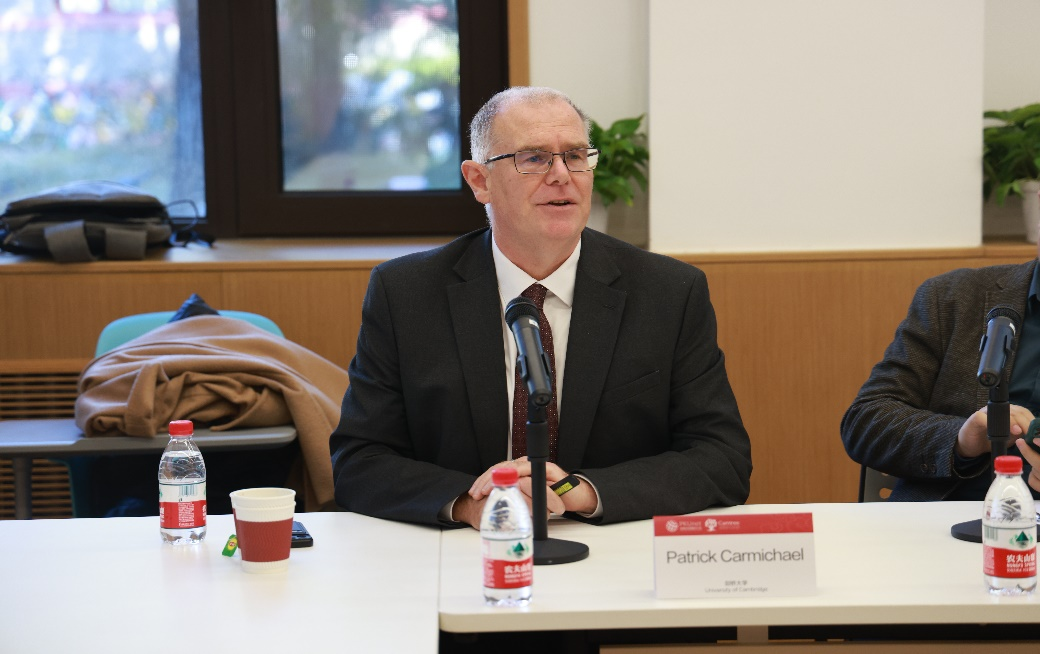
Presentation by Patrick Carmichael
At the salon, educators and experts from Peking University and Cambridge University went into depth on the application of AI technologies in today’s education. They covered topics such as the effects of AI on traditional teaching models, the adaptability of educational technologies, and human-machine collaboration. The event was unanimously praised by attendees for its rich and practical content, which was seen as beneficial for front-line educators to address the challenges and opportunities brought by generative AI. PKUnet and Camtree intend to organize a series of seminars, both online and offline, to broaden the international mindset of front-line educators and foster educational dialogues in a global context.
